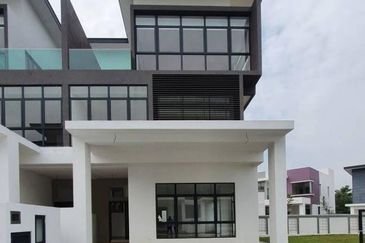
KUALA LUMPUR (May 1): Bank Negara Malaysia has issued an FAQ to respond to the public’s queries on the six-month moratorium granted on Hire-Purchase loans and fixed rate Islamic financing.
The following is the FAQ issued by the central bank this morning:
It was previously announced that the six-month payment deferment for Hire-Purchase (HP) and fixed rate Islamic financing is automatic.
1. Has there been a reversal in this decision?
No, the payment deferment is still automatic for HP and fixed rate Islamic financing.
What is required now is an additional step to comply with procedural requirements under the Hire-Purchase Act 1967 (HP Act) and Shariah. This additional step is unavoidable, and is required to incorporate the changes to the payment schedule and/or amounts as a result of the six-month payment deferment in loan/financing agreements.
2. Why are other loans/financing (e.g. mortgages, personal loans, business loans etc) not similarly affected?
Other loans/financing are not subject to the HP Act or similar Shariah requirements. However, interest/profit will also accrue over the deferment period for these loans and will also need to be repaid once payments resume post-deferment.
3. Is there a change for borrowers/customers to qualify for the HP and fixed rate Islamic financing payment deferment?
There is no change in the eligibility criteria
4. As it is already the end of April, is there a change to the payment deferment period for these financing facilities?
There is no change in the payment deferment period, that is, it is effective for six months starting from April 1 until Sept 30 2020.
5. For fixed rate Islamic financing, are there any additional legal fees if a new agreement is required?
In such cases, financial institutions are not allowed to impose any additional charges, including legal fees, on borrowers/customers.
6. How would my HP or fixed rate Islamic financing monthly instalments change after the deferment period?
Financial institutions will inform each borrower/customer of the changes to his/her HP loan or fixed rate Islamic financing payment schedule and instalment amounts.
Borrowers/customers should weigh for themselves the pros and cons of deferring the payment, and pay particular attention to their ability to meet these payments after the moratorium.
You should call or email your financial institutions if you need more information, or if you need to discuss alternative payment arrangements.
Here is an example to help you better understand the financial impact post deferment.
For a RM50,000 HP loan with a remaining tenure of five years and a fixed interest of 2.71% (or an effective rate of 5.36%) per annum, the monthly instalment was RM712 before the deferment. The instalment will increase to RM731 after the deferment, meaning an increment of RM19. The increase in total interest will be RM1,130. In this example the instalment amount increases by 2%, or RM19 a month.
Stay calm. Stay at home. Keep updated on the latest news at www.EdgeProp.my #stayathome #flattenthecurve
TOP PICKS BY EDGEPROP

Bukit Jalil Residensi
Bukit Jalil, Kuala Lumpur

ARA SENDAYAN @ BANDAR SRI SENDAYAN
Seremban, Negeri Sembilan

hero.jpg?GPem8xdIFjEDnmfAHjnS.4wbzvW8BrWw)





















